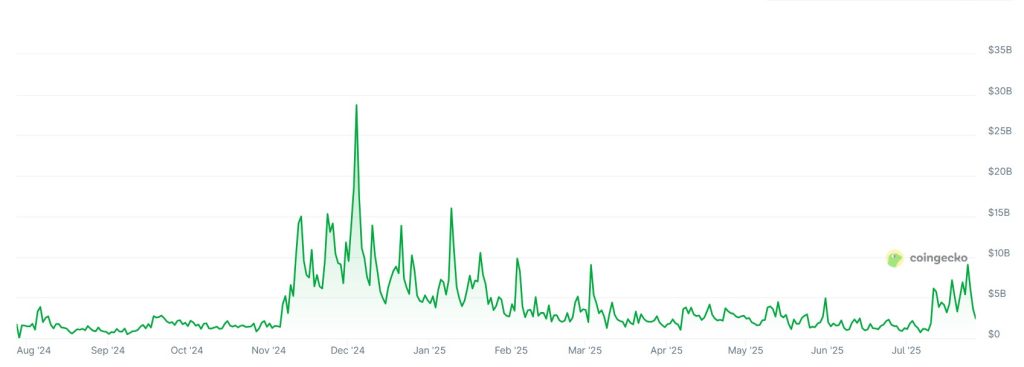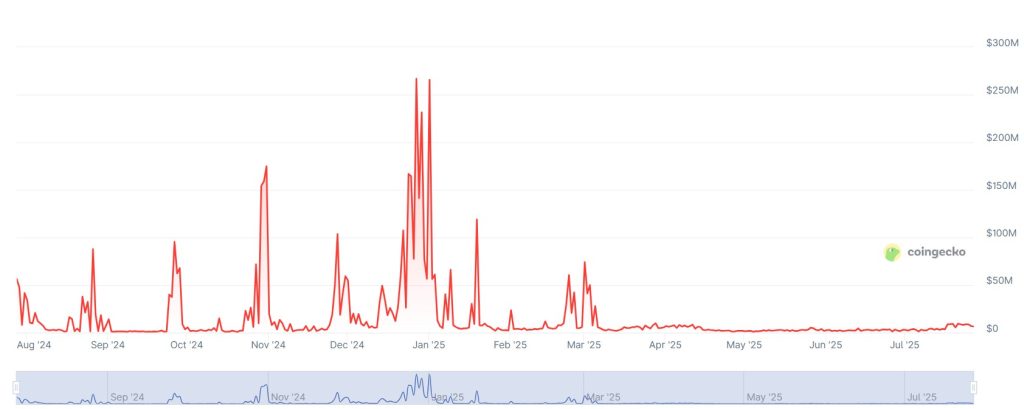In a fascinating twist for cryptocurrency enthusiasts in South Korea, local exchanges have dished out a staggering $87 million in interest on fiat deposits over the past year. This eye-opening figure, revealed by the Financial Supervisory Service (FSS) following a request from Democratic Party lawmaker Heo Young, showcases the competitive landscape that has emerged since the introduction of the Virtual Asset User Protection Act in July 2022.
The five major platforms in this bustling market—Upbit, Bithumb, Coinone, Korbit, and GOPAX—have collectively shelled out a remarkable total of 120.26 billion won ($87 million) in interest payments to their users. This figure not only highlights the growing importance of user protection in the crypto sector but also paints a vivid picture of the fierce competition among exchanges eager to attract customers with enticing interest rates.

The legislation mandates that exchanges provide reasonable interest on fiat deposits held on their platforms, a drastic change from the previous norms where interest rates were a mere 0.1% per annum. The new law sparked a race among exchanges, competing fiercely with one another to offer significantly higher rates that would captivate the attention of potential depositors.

As exchanges ramped up their interest offerings, we witnessed breathtaking announcements, such as Bithumb’s brief foray into offering a jaw-dropping 4% interest rate before retracting the offer just six hours later. This volatility in interest rates is a testament to the intense atmosphere surrounding crypto platforms, which have now begun to recalibrate their strategies. As of late June, Upbit and Bithumb were reporting interest rates of 2.1% and 2.2%, respectively, while the lower-tier platforms like GOPAX were offering 1.3%. Yet, even these numbers far surpass the typical 1% that traditional banks deliver on savings accounts.
A growing number of seasonal foreign workers are vanishing from job sites across rural Korea, deepening concerns among local governments. The disappearances are straining a national program that brings in short-term laborers from overseas.https://t.co/96ajzRxMOe— The Korea JoongAng Daily (@JoongAngDaily) July 25, 2025
However, as the market dynamics shift, exchanges have begun to adjust their rates downwards in reaction to the Bank of Korea’s recent decision to lower the base interest rates. This month, Korbit reduced its rate to 1.9%, while Coinone announced its own cut to 1.77%, indicating that the competitive landscape remains fluid and responsive.
Looking forward, the Financial Supervisory Service is intent on developing a standardized system for calculating interest payments to ensure a balanced competitive environment among exchanges. Lawmaker Heo Young expressed concerns regarding capital concentration among a few platforms, especially in light of Upbit’s command over more than 60% of the market share. He noted, “While the act provides a safety net for users, we must refine the system to prevent monopolistic practices and foster a healthier competitive space.”
This evolving scenario in South Korea’s cryptocurrency market serves as a reminder of the critical balance between user protection and competition. As platforms vie to retain user interest and adapt to regulatory expectations, it will be intriguing to witness how these changes will influence the future trajectory of crypto investments in the country.
To delve deeper into this topic, check out detailed analyses on platforms like CoinDesk, where you can stay updated on the trends in cryptocurrency legislation and market movements. Join the conversation and keep your finger on the pulse of the crypto world!
